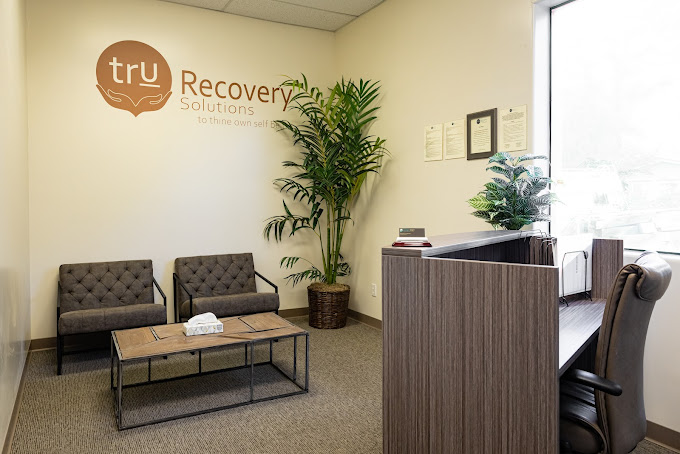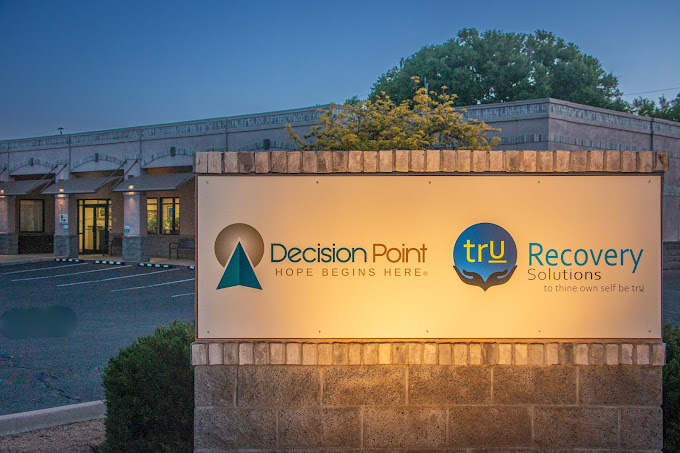

Working To Make Your Recovery Affordable By Accepting Most Insurances
Do not be discouraged if you are not seeing your insurance provider listed on our website. We take many types of insurance! Call Today: (844) 292-5010
-
 In-Network: BCBS
In-Network: BCBS -
 In-Network: Aetna
In-Network: Aetna -
 In-Network: Tricare
In-Network: Tricare -
 In-Network: Cigna
In-Network: Cigna -
 Proudly Caring for Veterans
Proudly Caring for Veterans -
 In-Network: Carelon
In-Network: Carelon -
 In-Network: MultiPlan
In-Network: MultiPlan -
 In-Network: HMC
In-Network: HMC
Drug Detox in Prescott, AZ
A Safer Start to Drug Rehab

Drug addiction must be challenged as soon as possible before it causes serious harm. However, cutting off the use of an addictive drug all at once or “going cold turkey” can trigger unsafe withdrawal symptoms. For many people, the right starting point of a rehab program is drug detox because it provides a safe space to slowly stop drug use safely.
Decision Point Center in Arizona is proud to offer a medically supervised, safe drug detox program for any patient who needs it. If you or a loved one has a strong addiction to a drug or substance, then please contact us now to see if our drug detox program could help.
Are you or a loved one struggling with drug addiction? Our drug detox program in Prescott, AZ, offers a safe and supportive environment to begin your path to recovery. Call Decision Point Center today at (844) 292-5010 or contact us online to learn how our detox services can help you start fresh!
What is Drug Addiction?
Drug addiction, also known as substance use disorder, is a chronic and relapsing condition characterized by compulsive drug seeking, use, and continued use despite harmful consequences. It's considered a brain disorder because drugs alter the brain's structure and function, leading to changes in behavior, judgment, and decision-making.
Addictive drugs can be broadly categorized into various types, each with its own potential for addiction and associated risks. Here are some common types of addictive drugs:
- Stimulants: These drugs increase alertness, attention, and energy, often leading to a sense of euphoria. Examples include cocaine, amphetamines, and methamphetamine.
- Depressants: These drugs slow down the central nervous system, inducing relaxation or sedation. They include alcohol, benzodiazepines (like Xanax or Valium), and barbiturates.
- Opioids: Opioids are potent pain relievers that can produce feelings of euphoria. Prescription opioids like oxycodone and hydrocodone, as well as illegal opioids like heroin, fall into this category.
- Hallucinogens: These drugs alter perception, thoughts, and feelings. Examples include LSD, psilocybin (magic mushrooms), and PCP.
- Cannabis: Marijuana, derived from the Cannabis plant, can cause altered perceptions and mood changes and can lead to addiction in some individuals.
- Nicotine: Found in tobacco products, nicotine is highly addictive and is a stimulant that affects the central nervous system.
- Inhalants: Substances like solvents, aerosols, and gases that are inhaled to produce mind-altering effects. They can cause immediate short-term effects and, in some cases, long-term damage.

Addiction to these substances can develop for various reasons, including genetic predisposition, environmental factors, and the drug's impact on brain chemistry. Over time, the brain adapts to the presence of the drug, leading to tolerance (needing more of the substance to achieve the same effect) and dependence (experiencing withdrawal symptoms when not using the drug).
Treatment for drug addiction often involves a combination of behavioral therapies, counseling, medications (for certain types of addiction), and support groups. It aims to help individuals manage cravings, address underlying issues, and learn coping strategies to lead a substance-free life.
Common Signs of Drug Addiction
Not all of these signs will be present in every case, and the severity can vary depending on the individual and the specific drug being used.
Here are some common signs of drug addiction:
- Increased Tolerance: Needing more significant amounts of the substance to achieve the same effects is a classic sign of addiction. Over time, the body becomes accustomed to the drug, requiring higher doses for the desired result.
- Withdrawal Symptoms: Experiencing physical or psychological symptoms when attempting to stop using the drug. These symptoms can range from mild discomfort to severe reactions depending on the drug and the level of dependency.
- Loss of Control: Difficulty controlling or stopping drug use despite a desire to quit. The individual may have made unsuccessful attempts to cut down or stop using.
- Cravings: Strong urges or desires to use the drug, which can be intense and persistent. These cravings can be triggered by specific situations, emotions, or environments associated with drug use.
- Neglecting Responsibilities: Prioritizing drug use over responsibilities such as work, school, or family obligations. This can result in a decline in performance or neglect of duties.
- Changes in Behavior: Observable changes in behavior, such as increased secrecy, isolation from family and friends, sudden mood swings, or unexplained personality changes.
- Physical Changes: Physical changes can occur due to drug use, such as bloodshot eyes, sudden weight changes, tremors, slurred speech, or changes in personal hygiene.
- Social and Interpersonal Issues: Strained relationships with family, friends, or coworkers due to drug use, lying, or engaging in risky behaviors.
- Engaging in Risky Behavior: Taking risks to obtain drugs, such as stealing, driving under the influence, or engaging in unsafe sexual practices.
- Loss of Interest: A decrease in interest in previously enjoyed activities or hobbies as drug use becomes the primary focus.

It's important to note that experiencing one or two of these signs does not necessarily indicate drug addiction. However, when multiple signs are present, it might indicate a deeper issue requiring attention and possibly professional help or intervention.
What Happens During Drug Detox?
Drug detox places the patient in a safe, controlled environment with constant supervision from medically trained professionals. The purpose of this supervision is to reduce the risk that the patient will experience any unsafe withdrawal symptoms. The patient will have immediate access to medical care if such symptoms occur.
To treat withdrawal symptoms, trained detox professionals can administer medication to help the patients safely detox the addiction they are currently struggling with. This method does not cause a sharp rise in the patient’s urge to have another dose, like what would happen if they took the addictive substance unsupervised. On the other hand, it can significantly slow down or minimize the withdrawal symptoms caused by stopping the use of an addictive substance.
Drug Detox Benefits
The main benefits of drug detox when done by the professionals of Decision Point Center include:
- Safer rehab procedures and treatments due to lessened risk of withdrawal symptoms.
- Reduced risk of relapsing due to drug cravings during rehab.
- Higher chance to stay sober for longer when rehab ends.
- Greater feeling of togetherness and community with others in detox and rehab.
Who Should Start Drug Detox?
Drug detox is typically recommended for individuals who have developed a physical dependence on drugs and are experiencing withdrawal symptoms when they try to stop using. This can include individuals who have been using drugs for an extended period, as well as those who have been using high doses of drugs.
It's also important to consider the severity of the drug use, and whether it's impacting the individual's ability to function in their daily life and relationships. If someone's drug use is causing problems in their work, school, or personal life, it may be time to consider detox.
It's also recommended that individuals who have a co-occurring mental health disorder such as depression or anxiety seek professional help as they may require additional support during the detox process.
Ultimately, the decision to start drug detox should be made in consultation with a medical professional or addiction treatment specialist, who can assess the individual's specific needs and recommend the most appropriate course of action. In the end, physical and mental dependence is dependent on the person and drug. Dependence on a particular substance can be created within 1-2 weeks, so it is essential to consult with an expert to determine the right course of action.
Dangerous substances that often require detox when beginning addiction treatments include:
During the admission process at Decision Point Center, you can discuss drug detox with a member of our team. We can assess the situation and advise you if detox is necessary. Everyone who comes to our doors for rehab is seen as a friend in need, so we will make a personalized drug rehab plan for you, whether it involves detox or not.
Why is Drug Detox Necessary?
People need drug detox because addiction to drugs can cause changes in the brain that make it difficult to stop using the substance without professional help. When someone has been using drugs for an extended period, their body becomes physically dependent on the substance. This means that when they stop using, they will experience withdrawal symptoms. These symptoms can be uncomfortable or even dangerous, making it difficult for the individual to quit independently. Drug detox is a process that helps individuals safely and comfortably manage withdrawal symptoms, which makes it easier to stop using the substance and start the process of recovery. Additionally, detox helps to cleanse the body of the toxins that have accumulated as a result of drug use, which is an essential step in the healing process.
Can You Detox at Home?
It is not recommended to detox at home as withdrawal symptoms can be severe and, in some cases, life-threatening. Medical supervision is essential to ensure the safety of the individual during the detox process.
After Drug Detox
As mentioned, drug detox is typically the first step in a drug addiction recovery journey. Once it is completed, the next steps in your recovery program can begin. The complete journey will look unique because we base it on your needs and preferences. This will include therapy, counseling and other support services to help the individual develop the skills and strategies they need to maintain long-term recovery from addiction.
To name only a few of our treatment options at Decision Point Center:
- Dual Diagnoses
- Cognitive-behavioral therapy (CBT)
- Dialectical-behavioral therapy (DBT)
- EMDR trauma therapy
- Life skills development
- Solution-focused brief therapy
- Intensive outpatient programs
- Residential inpatient programs
- Partial hospitalization programs
Contact Our Drug Detox Center in Prescott Today
Decision Point Center in Arizona makes taking the first step toward sobriety simple and stress-free by paying attention to your needs and making you feel at home. If you need drug detox to safely stop using an addictive substance, we are here to support and guide you. Together, we are confident that we can help you get the healthy future that you deserve.
If you're ready to break free from addiction, our drug detox program in Prescott, AZ, is here to support you. Reach out to the Decision Point Center today and take the first step toward lasting recovery!

Real Clients. Real Recoveries.
-
“Thank you for helping me navigate through one of the most difficult times in my life. I really attribute my experience while in your care to saving my life and career.”- Phil O.
-
“Doug and Wade really helped me and my loved ones through a tough time.”- J.C.
-
“Steve in admissions was extremely helpful for our family as we tried to choose a program recently.”- Paula A.
-
“Decision Point was different from the beginning. A team approach from professionals who care.”- Candace
-
“Thank you for helping me be a better person. Doug and Wade really helped me and my loved ones through a tough time.”- JD
-
“The moment I was in their hands, my transformation began. They actually cared. They actually WANTED to help me. I wasn't just another paycheck to them. They asked questions. They made a plan for me. And they followed it to the T.”- Amber B.
-
“THIS MAN MOVED MOUNTAINS to literally help save her!”- Corin C.
-
This facility deserves a special recognition. They have been around for years but the services they provide and the recovery that comes out of their facility, only seem to grow over the years. I have worked with Stephen from the admissions department and he has always gone above and beyond to make sure clients feel comfortable and get the care they need. I definitely recommend Decision Point Center!!!!- Ashley B.

We Understand You May Have Questions
Let Us Provide You With Answer
-
Do You Offer Wilderness Therapy And How Does It Work?While we do not offer Wilderness Therapy, we do offer outdoor and recreational therapy incorporating hiking, and backpacking to challenge individuals to become the confident person they know they can be. This helps with identifying internal behavior patterns, beliefs, emotions, and core issues, while providing opportunities for learning in the areas of leadership, communication, and problem-solving skills.
-
Is the Treatment Facility Licensed and Accredited?Decision Point is licensed as a Behavioral Health Residential Facility by the Arizona Department of Health Services. We are also accredited by The Joint Commission. These standards are measured to be the target for quality and safety in behavioral health care. We are also a member of the National Association of Addiction Treatment Providers.
-
What Is Residential Treatment?Residential allows the individual a safe environment to engage in therapy and enrichment activities to confront the underlying issues that exacerbate their substance abuse or dual diagnosis. After our assessment and evaluation period with our therapists, counselors, and doctors we generate your plan to provide a treatment experience uniquely tailored to the individual.
-
How Long Will I Be In Treatment?Because substance use is a chronic disease, completion of our program is based on your unique needs and progress, and not on a date. While our Residential Program is a good guidepost, treatment over a longer period may be prescribed if it’s warranted.



Meet Our Dedicated Team
-
 Mary Ann Zuppardo Executive Director
Mary Ann Zuppardo Executive Director -
 Dr. Terry Vaughan Medical Director, Psychiatrist
Dr. Terry Vaughan Medical Director, Psychiatrist -
 Stephen Leza Director of Admissions & Business Development
Stephen Leza Director of Admissions & Business Development -
 Lindy Howard, MA, LPC Clinical Director
Lindy Howard, MA, LPC Clinical Director -
 Luke Bailey Director of Compliance
Luke Bailey Director of Compliance -
 Deborah Pallett, P.A. Physician Assistant
Deborah Pallett, P.A. Physician Assistant -
 Dr. Julia L. Summers, LPC DBT Therapist
Dr. Julia L. Summers, LPC DBT Therapist -
 Douglas Winter MS, LISAC, CSAT Primary Therapist
Douglas Winter MS, LISAC, CSAT Primary Therapist -
 Mark Branson, MA, LPC, NCC Trauma Therapist
Mark Branson, MA, LPC, NCC Trauma Therapist -
 Troy Trout Outdoor Activity Coordinator
Troy Trout Outdoor Activity Coordinator





















